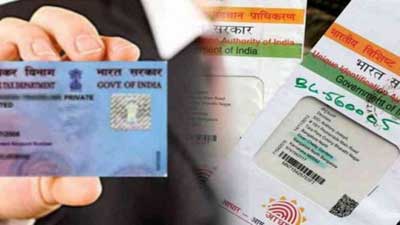Partnership Firm

A Partnership firm is a business structure that is operate, managed and controlled by association of people for profit according to the terms, conditions and objectives set out in a partnership deed. In partnership business the members are individually partners and share the profit and liability of the firm in a predetermined ratio.
In India, Partnership firm are governed by Indian Partnership Act, 1982 under section 4. Partnership is the relation between person who have agreed to share the profits of a business carried on by all or any of them acting for all.
Partnerships are of two types i.e. registered and un-registered. Registration of partnership firm is not compulsory but if it registered, advantages are added.
ADVANTAGES
EASY TO FORM
Like sole proprietorships, partnership businesses can be formed easily without any compulsory legal formalities. It is not necessary to get the firm registered. A simple agreement or partnership deed, either oral or in writing, is sufficient to create a partnership. Registration of the partnership is voluntary in most states. However, it would be best to check up the rules of your state to be sure. In states like Maharashtra, registration is almost compulsory.
AVAILABILITY OF RESOURCES
Since two or more partners join hands to start a partnership business, it may be possible to pool together more resources as compared to a sole proprietorship. The partners can contribute more capital, more effort and more time for the business.
BETTER DECISIONS
The partners are the owners of the business. Each of them has equal right to participate in the management of the business. In case of any conflict, they can sit together to solve the problem. Since all partners participate in the decision-making process, there is less scope for reckless and hasty decisions.
FLEXIBILITY IN OPERATIONS
A partnership firm is a flexible organization. At any time, the partners can decide to change the size or nature of the business or area of it’s operation. There is no need to follow any legal procedure. Consent of all the partners is required only.
SHARING RISKS
In a partnership firm all the partners “share” the business risks. Because of this, the partners may be encouraged to take up more risk and hence expand their business more.
PROTECTION OF INTEREST
In a partnership firm, every partner has an equal right in decision making and the management of the business. If any decision goes against the interest of any partner, he can prevent the decision from being taken.
BENEFITS OF SPECIALIZATION
Since all the partners are owners of the business, they can actively participate in every aspect of business as per their specialization, knowledge and experience. If you want to start a firm to provide legal consultancy to people, then one partner may deal with civil cases, one in criminal cases, and another in labour cases and so on as per the individual specialization. Similarly, two or more doctors of different specialization may start a clinic in partnership.
Get Expert Assistance
Company Registration
Documents Required For Registration
IDENTITY AND ADDRESS PROOF
Aadhar Card, Aadhar number is now a necessity for applying for any registration in India.
Income tax return can only be filed if the person has linked his PAN card with Aadhar number.
Address proof will be required for all directors and shareholders of the company to be incorporated.
For Indian nationals, PAN is mandatory. For foreign nationals, apostilled or notarised copy of passport must be mandatorily submitted.
Residence proof documents like bank statement or electricity bill should not be more than 2 months old.
All documents submitted must be valid.

MINIMUM REQUIREMENT
- Minimum 2 Partners.
- Partnership Deed.
Registered Office Proof
- Register office of all companies must be in India .If it is a Rented Property, Rent agreement and NOC from a landlord. If it is a Self-owned Property, Electricity bill or any other address proof.
- Documents submitted must be valid and not more than 2 month old.

Process
APPLICATION
It Include The Following Information: –
- Name Of Your Firm
- Name Of The Place Where Business Is Carried On
- Names Of Any Other Place Where Business Is Carried On
- Date Of Partners Joining The Firm
- Full Name And Permanent Address Of Partners.
VERIFICATION
Every Partner Needs To Verify And Sign The Application.
DOCUMENTS
Application For Registration In The Prescribed Form – I Duly Filled Specimen Of Affidavit – Certified Copy Of The Partnership Deed Proof Of Ownership Of The Place Of Business Or The Rental/Lease Agreement Thereof It May Be Noted Here That The Name Of Your Partnership Firm Should Not “Contain Any Words Which May Express Or Imply The Approval Or Patronage Of The Government Except Where The Government Has Given Its Written Consent For The Use Of Such Words As Part Of The Firm’s Name”. Once The Registrar Of Firms Is Satisfied That The Application Procedure Has Been Duly Complied With, He Shall Record An Entry Of The Statement In The Register Of Firms And Issue A Certificate Of Registration.
FREQUENTLY ASKED QUESTIONS
There is no provision under the partnership Act, 1932 which mandates the registration of partnership. However, the act itself provides for the procedure of registration of firm. Thus the registration is optional but highly recommended, as an unregistered firm shall not be able to recover any money in excess of INR 100/-. Apart from the above legal impediment, from the practical point of view also the firm should get registered in order to bring certainty in the relationship of partners and the firm per se.
No, it is not necessary. As the contract act does not makes it necessary to have the agreement in writing. However, it is always prudent to make a partnership deed to produce to the bank, income tax authorities and to clients with whom the partnership firm deals with. Apart from serving as a reference document a written partnership deed also helps in reducing conflict and confusion in due course of time.
Yes. A partnership firm can sue or be sued in its own name. The firm is treated separately from its partners. However, the partners do not enjoy limited liability as available in case of LLP or a company. In a situation where the firm is not in a position to discharge its liabilities, the partners shall be called in to pay the liabilities of the firm.
Yes. A person may become a partner with another for a single adventure or undertaking. The term of partnership firm can be for a specific period or for the completion of a specific project or at will. The deed must have a specific mention about the tenure of the partnership agreement. The Even partnership which is created for a specific purpose can be closed before the term with the consent of all the partners.
Yes. Unlike other incorporated business forms, you are personally liable for any of your sole proprietorship’s debts or legal judgments against your business. This means that in order to satisfy debts owed by your business, debt collectors can come after your personal assets, homes, cars, etc. For this reason, alone, you should be extremely cautious about setting up a sole proprietorship.
Yes. The law presumes that each partner is an agent of the other and while dealing with third parties the partner is representing the partnership firm in good faith. The acts done by one partner is binding on another even if it is not in the knowledge of the other party.
Three elements are necessary to form a partnership: There must be an agreement between two or more persons, The agreement must be to share the profits of the business, All partners together, or any one, on behalf of the others must carry on the business.
The Partnership Act does not prohibit a non-citizen from joining an Indian partnership firm, subject to necessary clearances and permissions from satisfactory authorities in this regard.
Capital is the initial amount in cash or kind contributed by the partners to start the business. It is not necessary for each partner to contribute equally to the capital. Contribution is based on the agreement between the parties.
Partners must be major (above the age of 18), should be sane and should not be disqualified by law from entering into a contract.
The following are the rights of a partner: To take part in the business, To share the profit or loss of the business, To inspect and make copies of the books of the firm, To receive remuneration for taking part in the business if specified in the partnership deed, To receive interest on capital if specified in the partnership deed.
Your duties as a partner are to: carry on the business, be just and faithful to each partner, disclose true accounts of the firm, furnish full information of all things affecting the firm.
As a partner you cannot do the following without the consent of the other partners: Submit a dispute relating to the business to arbitration. , Open a bank account on behalf of the firm in your own name, Compromise or relinquish any claim or portion of a claim of the firm, Withdraw a suit or proceeding filed on behalf of the firm, Enter into partnership with an outsider on behalf of the firm, Acquire or transfer immovable property belonging to the firm, Admit any liability in a suit or proceeding against the firm.
